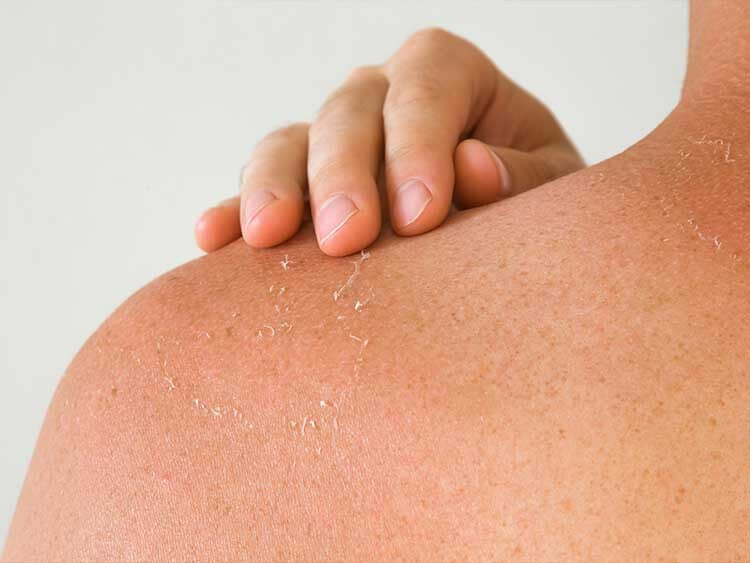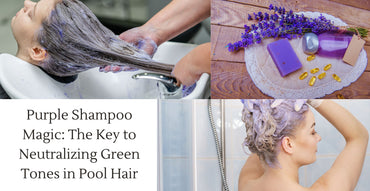The Skin-Saving Serum is a cutting-edge skincare product created to provide your skin with a variety of advantages. It is made with a robust combination of active ingredients that combine to effectively address a range of skin issues and improve overall skin health. Apply a tiny amount of the Skin-Saving serum to your skin after thoroughly cleansing your face. Till it is completely absorbed, gently massage it using upward circular strokes. Apply your usual moisturiser or sunscreen next. It's vital to keep in mind that while the skin-saving serum has several advantages, individual outcomes may differ. Before introducing any new product into your routine, it is always advised to patch-test new skincare products and speak with a dermatologist or skin care specialist, especially if you have particular skin concerns or allergies.
The Power of Serums in Your Skincare Routine

Serums have become essential components of many skincare regimens due to their concentrated active ingredient levels and specialised formulas. For the following reasons, serums are useful additions to your skincare routine:
-
High Concentration of Active Ingredients: In comparison to other skincare products like moisturisers or cleansers, serums typically have a higher concentration of active ingredients in their formulation. This enables the delivery of essential ingredients to the skin to be more potent and efficient. Serums can deliver these ingredients in higher doses, helping you achieve the hydration, brightening, anti-aging, or acne-fighting effects you're looking for.
-
Targeted Treatment: Serums are frequently made to address particular skin issues, such as fine lines, wrinkles, hyperpigmentation, acne, or dullness. They have ingredients that specifically address these problems, giving skincare a more targeted approach. You can more successfully address your concerns by incorporating a serum that addresses your particular issues.
-
Lightweight and Quick Absorption: Compared to moisturisers, serums are lighter and have a thinner consistency, which allows them to absorb into the skin more quickly. This rapid absorption allows the active ingredients to penetrate deeper into the skin layers, delivering benefits at the cellular level. Serums' lightweight texture makes them ideal for layering with other skincare products.
-
Versatility: Serums can be used in a variety of ways. They can be used as standalone treatments or as part of an existing skincare routine. They can be combined with other serums to create a customised skincare cocktail that addresses multiple concerns. This adaptability allows you to tailor your skincare routine to your specific requirements.
-
Supplement to Other Skincare Products: Serums are effective on their own, but they also work in tandem with other skincare products. For example, using a serum before applying a moisturiser can enhance the moisturiser's effectiveness by creating a hydrated and nourished base. Serums can also complement the effects of cleansers, exfoliators, and sunscreen, creating a comprehensive skincare regimen.
It's important to follow the manufacturer's instructions when adding a serum to your skincare routine. Serums are often administered following cleaning and toning but prior to moisturising. It should be gently rubbed into the skin until completely absorbed; a tiny amount is typically plenty. Because every person's skin is different, it's important to select a serum that is appropriate for your particular skin condition and skin type. To make sure you're using the best products for your skin, it's always a good idea to speak with a dermatologist or skincare expert if you have any questions or concerns.
What Are Serums and Why Do You Need Them?
Lightweight serums for the skin include a high concentration of active components. They are made to tackle particular skin issues and offer the skin powerful advantages. Here's why you should incorporate serums into your skincare routine:
-
Concentrated Formulas: Antioxidants, vitamins, peptides, hyaluronic acid, and other useful substances are concentrated in high amounts in serum formulations. These ingredients are frequently present in higher concentrations compared to other skincare products, allowing for a more potent and effective delivery to the skin. Serums are effective tools for addressing particular skin concerns due to their concentrated formulas.
-
Targeted Treatment: Serums are made to target different skin issues, such as hydration, brightening, anti-aging, fighting acne, and more. They are made with particular ingredients that specifically address these issues. For instance, a serum with vitamin C can lighten the skin and make dark spots less noticeable, and a serum with retinol can help smooth out wrinkles and fine lines. You can more successfully address those issues by using serums designed to meet your individual needs.
-
Lightweight and Quick Absorption: Serums are fluid in consistency, allowing for immediate absorption into the skin. Their thin texture guarantees that the active ingredients reach the deepest layers of the skin, providing cellular benefits. Serums are ideal for layering with other skincare products because of their quick absorption, which prevents the skin from feeling weighed down or greasy.
-
Complement to Your Skincare Routine: Serums work in synergy with other skincare products, such as cleansers, moisturisers, and sunscreens. They have the potential to improve the effectiveness of these products and provide additional benefits. As an illustration, using a hydrating serum first, then a moisturiser, aids in sealing in moisture and enhancing overall hydration levels. You can develop a thorough regimen that addresses various issues by including serums in your skincare routine.
-
Versatility: Serums can be used in a variety of ways. They can be incorporated into your current skincare routine or used as standalone treatments. You can apply a serum once or twice daily, or as a targeted treatment for particular problem areas, depending on your needs. Some serums can even be combined to produce a unique concoction that treats various skin issues.
It's important to follow the manufacturer's instructions when using serums in your skincare routine. Prior to moisturising, but usually after cleansing and toning, serums are applied. It should be gently massaged into the skin until fully absorbed; a small amount is usually sufficient.
The Benefits of Antioxidant-Rich Serums for Your Skin
Serums that are high in antioxidants have many advantages for your skin. Antioxidants are compounds that aid in defending the skin against harm brought on by dangerous free radicals, and unstable molecules that can cause inflammation, early ageing, and other skin problems. The following are some advantages to applying antioxidant-rich serums:
-
Neutralise Free Radicals: Free radicals, which are created by a range of environmental variables like UV radiation, pollution, and stress, are neutralised by antioxidants in serums. By scavenging these free radicals, antioxidants aid in lowering oxidative stress and skin cell damage. As a result, the skin's overall health and integrity are maintained.
-
Effects on Anti-Aging: Free radicals cause the breakdown of collagen and elastin, two essential proteins that give the skin its elasticity and firmness. By defending collagen and elastin fibres, antioxidant-rich serums work to counteract this deterioration and promote a more youthful appearance. They can aid in lessening the visibility of wrinkles, fine lines, and other ageing signs.
-
Brightening and Even-Tone: A number of antioxidants, including vitamin C, niacinamide, and resveratrol, have brightening effects. They can aid in reducing dark spots, hyperpigmentation, and uneven skin tone, giving your skin a more radiant and even tone. The general tone and texture of the skin can be improved with regular use of antioxidant-rich serums.
-
Anti-inflammatory and Soothing: Antioxidants with soothing and calming effects include chamomile, aloe vera, and green tea extract. They can lessen skin sensitivity, lessen redness, and soothe irritated skin. Those with sensitive or reactive skin may find relief from using serums containing these antioxidants.
-
Environment Protection: Serums high in antioxidants serve as a barrier against environmental irritants. They help to mitigate the effects of UV radiation, pollution, and other external influences. These serums help to maintain a stronger and more resilient skin barrier by enhancing the skin's natural defence mechanisms.
-
Benefits of Improved Skincare: Antioxidants can improve the effectiveness of other skincare products. When combined with ingredients like retinol, hyaluronic acid, peptides, and antioxidants, they can boost the performance of these active ingredients. They can enhance hydration, boost collagen synthesis, and rejuvenate the skin as a whole.
When using antioxidant-rich serums, it's important to use formulations that are suitable for your skin type and particular needs. Use the serum as part of your skincare regimen after cleansing and toning but before applying moisturiser. For best results, adhere to the manufacturer's recommendations. To benefit from antioxidant-rich serums, keep in mind that regular use is essential. These serums have the potential to preserve and nourish your skin over time, providing a healthier and younger-looking complexion.
The Key Ingredients to Look for in a Serum

In order for a serum to treat your particular skin conditions and produce the results you want, it's critical to consider the key components of the serum when making your selection. Here are some essential components that are frequently present in potent serums, though different serums may contain different substances suited to different purposes:
-
Hyaluronic Acid: This ingredient is well-known for its exceptional moisture retention ability. It hydrates the skin, plumping it up and making fine lines and wrinkles less visible.
-
Vitamin C: As a powerful antioxidant, vitamin C can help brighten the skin, even out the skin tone, and fade dark spots or hyperpigmentation. It also promotes collagen synthesis, resulting in a firmer, more youthful complexion.
-
Retinol: A vitamin A derivative, retinol is well known for its anti-aging properties. It promotes cell turnover, which reduces the appearance of wrinkles, fine lines, and age spots. Retinol can also improve the texture and tone of the skin.
-
Peptides: These small chains of amino acids are essential for the production of collagen and elastin, which are required for skin elasticity and firmness. Peptides in serum can help to enhance skin texture and lessen ageing symptoms.
-
Niacinamide: Niacinamide, also referred to as vitamin B3, has numerous advantages for the skin. It improves skin tone, reduces pore size, reduces oil production, and strengthens the skin barrier. It can also lessen inflammation and redness.
-
Alpha Hydroxy Acids (AHAs): AHAs, like glycolic acid and lactic acid, are exfoliating substances that can assist in removing dead skin cells, promoting a smoother and more radiant complexion. They can also help to improve skin texture and lessen the appearance of hyperpigmentation.
-
Beta Hydroxy Acid (BHA): Also known as salicylic acid, BHA is particularly beneficial for acne-prone or oily skin. It has the ability to penetrate deeply into the pores, unclogging them and reducing acne breakouts. BHA has anti-inflammatory properties as well.
-
Antioxidants: Green tea extract, vitamin E, resveratrol, and coenzyme Q10 are antioxidants that protect the skin from free radicals and environmental damage. Antioxidants aid in the maintenance of skin health and the prevention of premature aging.
When choosing a serum, keep in mind that it's critical to consider your skin type, issues, and desired results. Additionally, think about seeking personalised counselling based on your unique needs from a dermatologist or skincare expert.
Vitamin C: The Ultimate Brightening and Anti-Aging Ingredient
Vitamin C is considered a skincare powerhouse component due to its outstanding brightening and anti-aging properties. The following are some of the main explanations for why vitamin C is frequently hailed as the best component for creating a beautiful and youthful complexion:
-
Brightening: Vitamin C, an effective antioxidant, can brighten the skin by preventing the production of melanin, the pigment that causes dark spots and hyperpigmentation. Vitamin C can lighten the skin tone and reduce the appearance of dark spots, giving you a more radiant complexion.
-
Production of collagen: Vitamin C is essential for the synthesis of collagen, a protein that keeps the skin's elasticity and structural integrity. By encouraging the production of collagen, vitamin C improves skin firmness and lessens the visibility of fine lines and wrinkles, giving the complexion a more youthful appearance.
-
Antioxidant protection: As an antioxidant, vitamin C protects the skin from free radicals, which are unstable molecules that can damage skin cells and accelerate the ageing process. Vitamin C supports healthy skin by preventing oxidative stress and scavenging free radicals.
-
Sun protection: Vitamin C has shown promise in reducing the damaging effects of sun exposure on the skin. Vitamin C can add an additional layer of defence against UV-induced damage, though it cannot replace sunscreen. It can help lessen the effects of sunburn and photoaging by neutralising free radicals produced by UV rays.
-
Skin texture is improved: Vitamin C use on a regular basis can encourage the exfoliation and turnover of skin cells, giving you skin that is softer and more refined. It can lessen pore visibility, lighten acne scars, and enhance overall skin clarity.
Choose a stable and potent form of vitamin C, such as L-ascorbic acid, sodium ascorbyl phosphate, or ascorbyl tetraisopalmitate, when adding it to your skincare regimen. Additionally, make sure to store it properly to maintain its strength. For added sun protection, think about using it in conjunction with a broad-spectrum sunscreen. To reduce the danger of irritation, especially for individuals with sensitive skin, it is best to start with a lower dosage of vitamin C and then gradually increase it. Consulting with a dermatologist or skincare expert can offer personalised advice catered to your skin's needs if you have any particular questions or concerns.
Hyaluronic Acid: The Hydration Hero for Your Skin
Hyaluronic acid is a well-liked component of skincare products because of its moisturising qualities. Due to its capacity to draw and hold onto moisture in the skin, it is frequently referred to as a "hydration hero". Here are some details about hyaluronic acid and how it can help your skin:
-
How does hyaluronic acid work? Hyaluronic acid is a naturally occurring substance in the human body that is found primarily in the skin, joints, and connective tissues. It acts as a lubricant and cushioning agent, assisting in moisture retention and tissue hydration.
-
Hydration and plumping effect: Because of its exceptional ability to hold water molecules, hyaluronic acid can draw and retain moisture in the skin. It can hold up to 1,000 times its weight in water, which helps to hydrate the skin, improve elasticity, and make it appear plump.
-
Skin Moisturization: As we age, our bodies natural production of hyaluronic acid decreases, resulting in drier and less supple skin. Topically applying hyaluronic acid can replenish the moisture content of the skin, providing intense hydration and improving the skin's moisture barrier.
-
Reducing Fine Lines and Wrinkles: Dehydrated skin can make fine lines and wrinkles appear more prominent. Hyaluronic acid smoothes out the skin's surface and reduces the visibility of these signs of aging by increasing skin hydration.
-
All Skin Types: Hyaluronic acid is generally well-tolerated and suitable for all skin types, including sensitive and acne-prone skin. It is a light substance that quickly absorbs into the skin without leaving a greasy aftertaste.
-
Enhancing Skincare Products: Hyaluronic acid is frequently found in moisturisers, serums, and masks, among other skincare products. By facilitating their skin penetration, it can increase the efficacy of other active ingredients.
-
Effects, both immediate and long-term: Hyaluronic acid instantly hydrates the skin, leaving it feeling hydrated and revitalised. It can help to enhance the overall health and appearance of the skin with regular use over time.
Hyaluronic acid functions best when applied to wet skin, so keep that in mind when using it in your skincare regimen. Apply a few drops of a hyaluronic acid serum or moisturiser to your face after cleansing, then continue with your normal skincare regimen. Although hyaluronic acid is typically safe for topical use, it is always advisable to perform a patch test beforehand, especially if you have sensitive skin or any known allergies. Furthermore, it's important to think about the origin and quality of the hyaluronic acid used in the products you select.
The Transformative Benefits of Using a Serum

Your skin might experience dramatic improvements by incorporating a serum into your skincare regimen. Serums administer active substances to the skin directly and are thin, highly concentrated compositions. The following are some major advantages to including a serum in your skincare routine:
-
Treatment that Is targeted: Serums are made with high concentrations of active ingredients that are created especially to address certain skin issues, like fine lines, wrinkles, dark spots, uneven skin tone, or dehydration. You can more successfully address your unique skin care needs by using a serum.
-
Formulas with a High Concentration of Active Ingredients: Serums have a higher concentration of active ingredients than moisturisers or cleansers do. This means that a small amount of serum can benefit your skin significantly. The concentrated formula maximises the effectiveness of the active ingredients by allowing for better penetration and absorption.
-
Hydration and Moisture Boost: Many serums are made with humectants, which have excellent moisturising properties, like hyaluronic acid or glycerin. These substances draw moisture to the skin, rehydrating it and strengthening the moisture barrier. A hydrating serum used frequently can give skin a plumper, more moisturised appearance.
-
Antioxidant Protection: Antioxidants like vitamins C and E, green tea extract, or niacinamide are frequently found in serums. These antioxidants aid in defending the skin against environmental aggressors like pollution and UV radiation, which can hasten skin ageing. You can strengthen your skin's resistance to free radicals and maintain a more youthful appearance by incorporating an antioxidant-rich serum into your daily routine.
-
Brightening and Even Skin Tone: Some serums have active ingredients like vitamin C, kojic acid, or licorice extract that can lighten dark spots, reduce hyperpigmentation, and even out skin tone. By lessening the appearance of discoloration and fostering a more even skin tone, these serums can help to promote a brighter, more radiant complexion.
-
Texture and Smoothing: Some serums include ingredients that exfoliate, such as beta-hydroxy acids (BHAs) or alpha-hydroxy acids (AHAs). These components support cellular turnover, unclog pores, and gentle exfoliation of dead skin cells, giving the appearance of smoother, more refined skin. The general look and smoothness of your skin can be improved with regular use of these serums.
-
Customizable and Complementary: Serums can be combined with or layered over other skincare products, and they are very adaptable. This enables you to customise your skincare routine to take care of various issues or to boost the effects of other products. According to your skin's needs, you can use different serums in the morning and evening.
When using a serum, it's important to follow the instructions provided by the manufacturer. Typically, serums are applied after cleansing and toning, but before moisturising. They can be used once or twice a day, depending on the formulation and your skin's tolerance. Remember, consistency is key when using a serum. It may take time to see noticeable results, so it's important to use the product regularly and give it time to work. If you have any specific skin concerns or conditions, it's always a good idea to consult with a dermatologist or skin care professional for personalised advice.
Enhancing Skin Hydration and Elasticity
You can combine lifestyle choices, skincare regimens, and dietary routines to improve skin moisture and suppleness. Here are some pointers to increase the suppleness and hydration of your skin:
-
Stay Hydrated: Drink plenty of water throughout the day to keep your body and skin hydrated. Aim for 8 glasses of water per day, or more if you engage in physical activities or live in a dry climate.
-
Moisturise on a regular basis: Use a high-quality moisturiser that is appropriate for your skin type. Look for hyaluronic acid, glycerin, ceramides, or natural oils such as jojoba or argan oil. After cleansing, moisturise your skin to keep it hydrated and to lock in moisture.
-
Sun protection: Exposure to the sun's UV rays can cause skin damage, dehydration, and elasticity loss. Before going outside, use a broad-spectrum sunscreen with at least SPF 30 and reapply every two hours if you plan to spend a lot of time outside.
-
Use a Gentle Cleanser: Steer clear of abrasive soaps and cleansers that remove your skin's natural oils. Choose a mild cleanser that won't damage the moisture barrier on your skin. Look for products with "hydrating" or "moisturising" in the name.
-
Hydrating Face Masks: Use hydrating face masks as part of your skincare routine. Choose masks with ingredients like aloe vera, honey, hyaluronic acid, or cucumber to provide deep hydration and improve skin elasticity.
-
Exfoliation: Exfoliating on a regular basis can help remove dead skin cells and improve moisturiser absorption. To prevent over-exfoliation, which can cause dryness and irritation, use a gentle exfoliator once or twice a week.
-
Avoid Taking Hot Showers: Hot water can dry out and dehydrate the skin by removing its natural oils. When taking a shower or washing your face, choose lukewarm water to keep the skin's moisture levels high.
-
Use a Humidifier: Use a humidifier in your living spaces if you live in a dry environment or in the winter when the air is more likely to be dry. By adding moisture to the air, a humidifier aids in preventing skin dehydration.
-
Eat a Balanced Diet: Include plenty of fruits, vegetables, whole grains, and lean proteins in your diet. Include foods rich in antioxidants like nuts, leafy greens, and berries in your diet. Antioxidants can aid in preventing damage to the skin and maintaining its elasticity.
-
Get Enough Sleep: Your body, including your skin, can repair and regenerate when you get a good night's sleep. Aim for 7-8 hours of quality sleep each night to promote overall skin health.
Keep in mind that the secret to successful skincare is consistency. Be patient and continue your usual skincare routine to increase skin hydration and suppleness, because it could take some time to see noticeable benefits. Always seek out individualised guidance from a dermatologist or skincare expert if you have particular skin issues.
Reducing the Appearance of Dark Spots and Acne Scars
There are several methods you can use to help reduce the appearance of dark spots and acne scars, though it can be a gradual process. The following advice:
-
Sun protection: It's important to protect your skin from UV rays, which can make dark spots and acne scars worse and make them last longer. Even on cloudy days, use a broad-spectrum sunscreen with at least SPF 30 and reapply every two hours if you will be in the sun.
-
Gentle exfoliation: By removing dead skin cells and encouraging cell turnover, regular exfoliation can help acne scars and dark spots fade. Look for products that contain alpha-hydroxy acids (AHAs) or beta-hydroxy acids (BHAs) in chemical exfoliants. As your skin adjusts, gradually increase the concentration from a lower starting point. Exfoliating too vigorously can irritate the skin, so be gentle.
-
Vitamin C: Topical vitamin C application can assist in reducing dark spots and balancing skin tone. Look for serums or creams that have ascorbic acid, a stable form of vitamin C, and use them every day. In order to further protect against free radicals, vitamin C products should be applied in the morning before sunscreen.
-
Retinoids: Over time, retinoids, such as retinol or prescription-strength retinoids like tretinoin, can aid in reducing the visibility of dark spots and acne scars. They encourage the production of collagen and cell turnover, which can help lighten discoloration and enhance the texture of the skin. As your skin adjusts, start with a low concentration and gradually increase it. Always heed the advice and directions of your dermatologist or healthcare professional when using retinoids at night.
-
Chemical Peels: Using chemical peels performed by a professional can help lessen the visibility of dark spots and acne scars. These peels apply a chemical solution to the skin, which exfoliates the top layer of the skin and reveals a complexion that is smoother and more evenly toned. The right kind and strength of peel for your skin should be chosen after consulting a dermatologist or skincare expert.
-
Microneedling: Microneedling is a method for inflicting small, controlled wounds on the skin. This procedure encourages skin rejuvenation and stimulates the production of collagen. It can help smooth out the texture of the skin and lessen the visibility of acne scars. An expert in skincare or dermatology usually performs microneedling.
-
Makeup and concealers: You can use makeup items like foundation, concealer, and colour-correcting primers to cover dark spots and acne scars for a short period of time. Look for products that are complementary to your skin tone and offer adequate coverage. To prevent clogged pores, make sure to thoroughly cleanse your skin at night.
-
Patience and Consistency: It takes time and patience to reduce the visibility of dark spots and acne scars. Give the remedies time to work by strictly adhering to your skincare regimen. It's important to have realistic expectations because outcomes can vary.
If you're unsure of which approach is ideal for your specific skin concerns, you should always consult a dermatologist or other skincare specialist. They can examine your skin and provide customised advice based on your needs.
Improving Skin Texture, Brightening, and Reducing Pore Size
To improve skin texture, brighten your complexion, and reduce the appearance of pores, you can incorporate the following practices into your skincare routine:
-
Use a gentle cleanser twice a day to remove dirt, excess oil, and impurities from your skin. Look for a cleanser that is appropriate for your skin type and does not remove natural oils. Use gentle soaps and cleansers to avoid disrupting the skin's moisture barrier.
-
Exfoliate on a regular basis to remove dead skin cells, unclog pores, and improve skin texture. Choose a gentle exfoliator that is appropriate for your skin types, such as a chemical exfoliant containing AHAs or BHAs. Exfoliate once or twice a week to avoid irritation from over-exfoliation.
-
Include a vitamin C serum in your skincare routine. Vitamin C contains antioxidants that can help brighten the skin, fade dark spots, and improve overall skin tone. For best results, apply the serum in the morning before applying sunscreen.
-
Consider adding retinoids to your routine to enhance skin texture, promote the production of collagen, and minimise the visibility of pores. As your skin adjusts, start with a low concentration and gradually increase it. Retinoids should only be used at night. For individualised guidance, speak with a dermatologist or skincare expert.
-
Use a toner to balance the pH of your skin, close pores, and improve the texture of your skin. Try to find toners with witch hazel, salicylic acid, or tea tree oil as ingredients. After cleansing your face, dab a little bit of the solution onto a cotton pad and gently wipe your face.
-
Ensure proper hydration by drinking plenty of water and moisturising your skin. To keep your skin hydrated without clogging pores, use a light, non-comedogenic moisturiser that is appropriate for your skin type. Hydrated skin looks smoother and more plump.
-
Sun protection is essential for maintaining a healthy complexion and preventing further damage. Even on cloudy days, use a broad-spectrum sunscreen with at least SPF 30. Reapply every two hours if exposed to direct sunlight.
-
Use face masks as part of your skincare regimen to address particular issues. Clay masks can aid in removing impurities and reducing pore size, while sheet masks containing ingredients that brighten the skin can enhance skin radiance. Use masks in accordance with the directions and the needs of your skin.
-
Consider professional procedures like chemical peels, microdermabrasion, or laser resurfacing to treat particular skin texture issues. These procedures can lessen pore size, increase collagen production, and improve skin tone. To find the best course of treatment for you, speak to a dermatologist or skincare expert.
-
By eating a balanced diet, exercising frequently, controlling your stress levels, and getting adequate sleep, you can maintain a healthy lifestyle. These elements support healthy skin overall and can enhance skin texture and radiance.
Results may differ based on specific skin issues and types. To see obvious results from your skin care regimen, it's critical to be persistent and patient. It's always essential to consult a dermatologist or skin care specialist for professional assistance if you have any particular skin issues or conditions.
Choosing the Right Serum for Your Skin Type and Concerns

Achieving the best results requires selecting the ideal serum for your skin type and issues. Serums are extremely potent cosmetics that penetrate the skin deeply with active ingredients. Here are some things to take into account while choosing a serum:
-
Skin Type: Determine whether your skin is dry, oily, in combination, or sensitive. Serums are designed to address specific skin concerns and cater to various skin types. For example, lightweight and oil-free serums are ideal for oily or acne-prone skin, whereas richer and more hydrating serums are ideal for dry or mature skin.
-
Skin Concerns: Identify your primary skin concerns, such as ageing, hyperpigmentation, acne, dullness, or sensitivity. Look for serums that address those issues specifically. For instance, serums with retinol or peptides are good for delaying the signs of ageing, while serums with vitamin C or niacinamide can brighten the skin and lessen hyperpigmentation.
-
Ingredients: Make sure the serum contains active ingredients that address your unique concerns by carefully reading the ingredient list. Hyaluronic acid, which moisturises skin, antioxidants like vitamin C or green tea extract, which brighten skin and fight free radicals, and exfoliants like AHAs or BHAs, which improve skin texture, are some ingredients that are frequently found in serums.
-
Texture: Take into account the serum's texture and how it feels on your skin. For oily or combination skin, lightweight, watery serums are typically preferred as they absorb quickly without leaving a heaviness or greasy residue. For skin that needs extra hydration or is dry or mature, creamier serums may be appropriate.
-
Sensitivity: If you have sensitive skin, choose serums that are made without ingredients that could irritate it, such as alcohol, fragrances, or essential oils. To find products that are suitable for sensitive skin, look for the labels "gentle," "hypoallergenic," or "suitable."
-
Allergies or Sensitivities: Be aware of any ingredients to which your skin may be sensitive or allergic. Avoid serums containing ingredients if in the past you've experienced negative reactions to them.
-
Patch test: It's advised to carry out a patch test before incorporating a new serum into your regimen. To check for any negative reactions, apply a small amount of the serum to a discrete area of your skin (like the inside of your wrist) and wait for 24-48 hours.
-
Professional Advice: Consult a dermatologist or other skincare expert if unsure which serum is best for your skin type and concerns. They are able to assess your skin, comprehend your unique requirements, and suggest the serums or ingredients that are most likely to produce the desired outcomes.
When using serums, keep in mind that consistency is essential. The serum will work best if you incorporate it into your skincare routine and use it according to the directions.
Lightweight Formulas for All Skin Types and Seasons
Here are some options to think about if you're looking for lightweight serums that are appropriate for all skin types and seasons:
-
Hyaluronic Acid Serum: Hyaluronic acid is a hydrating substance that can hold up to 1000 times its weight in water, making it the perfect choice for giving all skin types light hydration. It increases skin elasticity, and improves moisture retention, and plumpness. Try to find serums with a lightweight, gel-like texture that absorb into the skin right away.
-
Vitamin C Serum: Vitamin C serums are renowned for their anti-inflammatory and brightening effects. They can lighten dark spots, even out skin tone, and shield the skin from environmental harm. Look for lightweight vitamin C serums that are suitable for all skin types, quick to absorb, and lightweight.
-
Niacinamide Serum: Niacinamide is a flexible ingredient that has a number of advantages, such as controlling sebum production, minimising pore size, enhancing skin texture, and enhancing complexion. All skin types, including oily and acne-prone skin, can use it because it is lightweight.
-
Green Tea Serum: Rich in antioxidants, green tea has soothing and calming properties. Green tea serums can help protect the skin from environmental stressors, as well as reduce redness and inflammation and provide light hydration. They are appropriate for all skin types, including those with sensitive skin.
-
Aloe Vera Serum: Aloe vera is renowned for its calming and moisturising qualities. Aloe vera serums can offer hydrating relief that is lightweight, soothe sensitive skin, and assist keep the skin's moisture balance. All skin types, even sensitive skin, can use them.
-
Peptide Serum: Peptides are amino acids that aid in the stimulation of collagen production and the improvement of skin elasticity. Lightweight peptide serums can aid in the reduction of fine lines and wrinkles, as well as the promotion of smoother skin texture and hydration. They can be used on all skin types, including mature skin.
-
Tea Tree Oil Serum: Tea tree oil has antibacterial properties and is frequently used to treat acne-prone and oily skin. Tea tree oil serums that are lightweight can help control sebum production, lessen acne outbreaks, and give the skin a cooling sensation. They are appropriate for people with oily and combination skin.
Look for formulations marketed as oil-free, non-comedogenic, or appropriate for all skin types when choosing lightweight serums. If you have particular issues or sensitivities, it is always a good idea to check product reviews and speak with a physician or skincare expert. Always test new products on a small area of skin before incorporating them gradually into your skincare regimen. Additionally, remember to use sunscreen throughout the day because mild serums may not be enough to protect you from the sun.
Addressing Sun Damage and Environmental Stressors with Serums
Environmental stresses and sun exposure can have a significant impact on the health and appearance of our skin. Fortunately, serums are useful skincare solutions that can assist in solving these problems. In this blog, we'll look at how serums can be used to treat skin problems like sunburn and environmental stresses. Excessive sun exposure can cause a variety of skin problems, including premature ageing, sunspots, uneven skin tone, and an increased risk of skin cancer. Our skin is subjected to a variety of environmental stressors, including pollution, smoke, and harsh weather conditions, in addition to UV damage. Recall to use serums on clean, dry skin before moisturising as part of your skincare routine. To get the most out of them, use them regularly and adhere to the manufacturer's instructions. Serums can be effective partners in the fight against environmental stresses and sun damage to the skin. Choosing serums with the right components can help renew and protect your skin, regardless of whether you're struggling with sunspots, early ageing, or the effects of pollution. Always seek the advice of a dermatologist or other skincare expert to choose the right products for your requirements and issues.
Dermatologist Recommendations for the Best Serums on the Market
We can give you broad recommendations for well-liked serums available on the market. Please note that these suggestions are not tailored to your skin type or issues. Always seek advice from a dermatologist or other skincare expert who can assess your skin and make specific recommendations. Here are a few well-known serums that are regularly suggested: Clinikally The Ultimate NIA (10% Niacinamide) Serum
Remember that when choosing a serum, you must consider your individual skin type, issues, and any potential allergies or sensitivities. The best course of action is to seek the advice of a dermatologist, who can suggest the ideal products.















